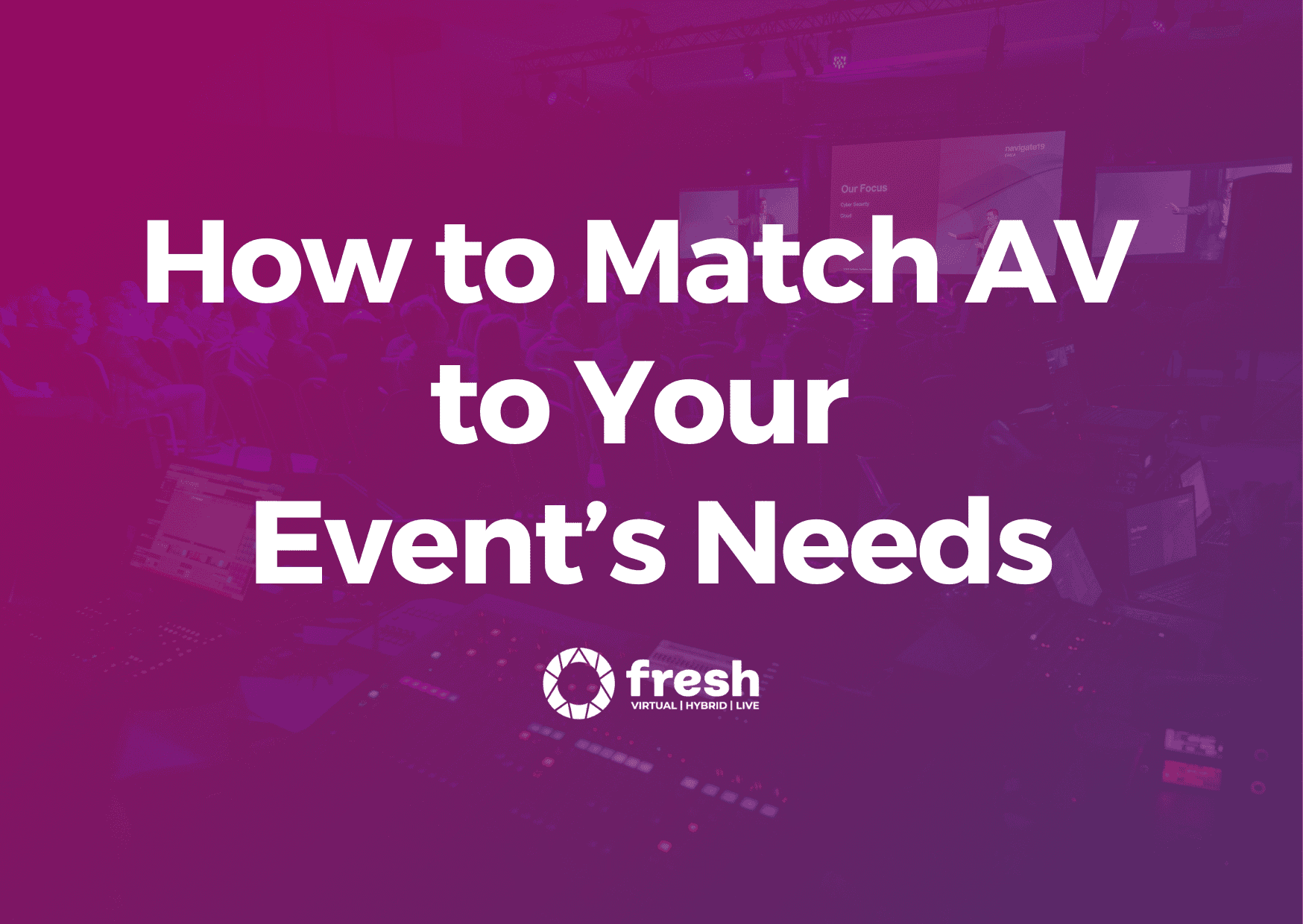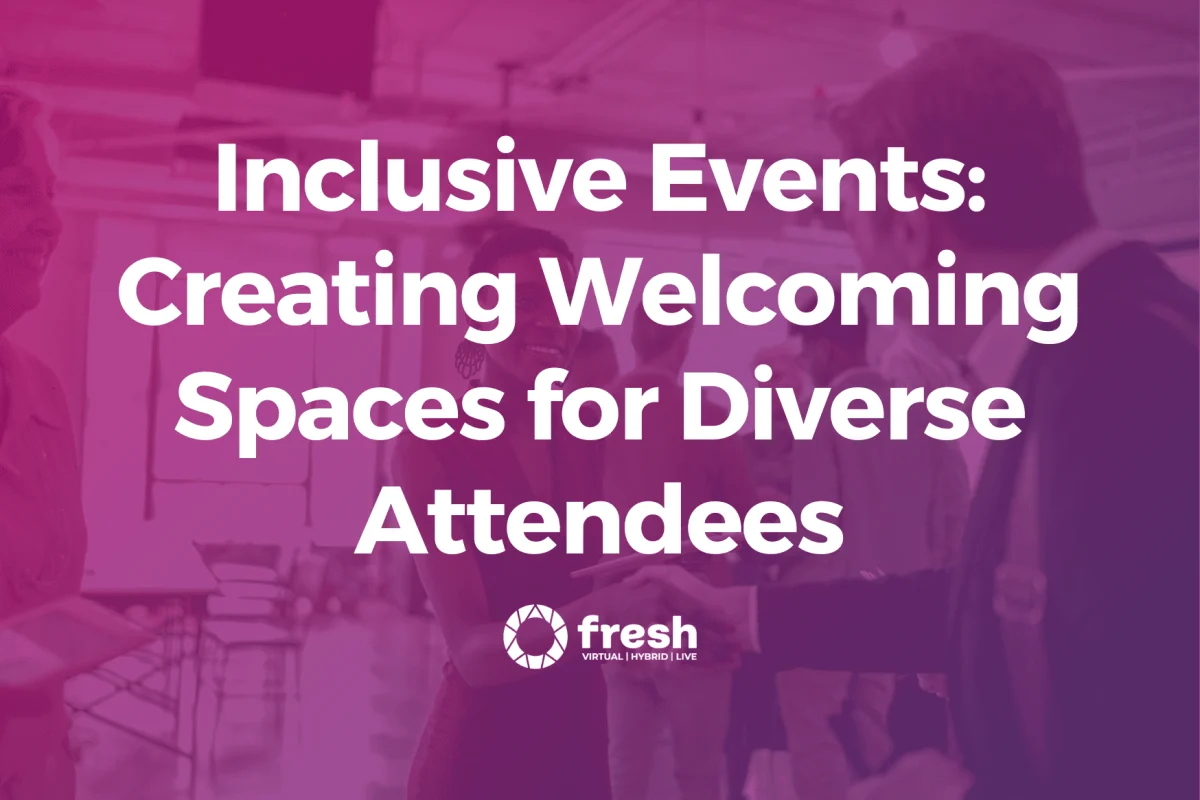Inclusive Events: Creating Welcoming Spaces for Diverse Attendees
It’s important to create inclusive event spaces that recognise the value of diversity and ensures each space is welcoming and respects everyone’s needs. To make sure every event you create is amazing, one rule is to make every guest feel included. Here’s how to create welcoming spaces for diverse attendees.
Understand Your Audience
One of the first steps to planning an event is to understand who your attendees are. Make sure you recognise diverse backgrounds, needs and the expectations of your guests and factors to consider include cultural backgrounds, physical abilities, gender identities and dietary requirements. If you are unsure of guests requirements you can conduct surveys or reach out to attendees to gather information that will help you tailor your event to meet their needs.
Accessible Venues
Make sure you are choosing a venue that allows all attendees to participate and access your event fully. Visit potential venues in advance to check standards and accessibility for all. This includes ramps and elevators for wheelchair users, accessible bathrooms, quiet spaces for divergent attendees and adequate signage that includes braille. Make sure there are is also plenty of space in corridors and public areas for guests to move about freely.
Inclusive Communication
Communication also plays a key role in making your event inclusive. Making sure your promotional materials, invitations and event information is accessible for everyone is incredibly important. Whether you need to use clear and simple language, create material that uses multiple languages, provide materials in multiple formats such as large print, braille and digital formats that are compatible with screen readers you need to plan and organise in advance what formats your guests will need.
Diverse Representation
Representation should always matter. Try to include event speakers, panellists and performers that reflects the diversity of your audience. It’s important to include inclusivity and create an event with speakers that your attendees can relate to. Including individuals from various backgrounds will also create enriching content with guests hearing different perspectives and helps again to foster an inclusive and inspiring environment.
Dietary Considerations
Food is typically a significant part to many events and dietary needs must be taken into account for guest satisfaction. There are many options to provide this, whether you cater to a variety of meal options that automatically offers different dietary requirements such as vegan, halal and gluten free or specifically ask guests in advance if they have any dietary needs to make sure each guest will have something that they can eat or you make sure certain items aren’t served due to allergies, this makes sure all guests will be catered for. Don’t forget to also clearly label food items or ensure catering staff are knowledgeable with the food options and ingredients needed or that should be avoided.
Inclusive Technology
Most events use technology, particularly as hybrid and virtual events become more popular. Incorporating different types of technology to help with inclusivity can really enhance your event. For example using captions and sign language interpretation, offering assistive listening devices for those with hearing impairments or even creating an event app or website that is accessible and user-friendly helps create an inclusive environment for all guests.
Create Safe Spaces
Regardless of your attendees needs it is incredibly important that all guests feel safe and respected. To make sure this happens implement a clear code of conduct which outlines expected behaviour from all guests and staff. You should also make sure staff are trained to handle any issues that arise and how to support guests.
Promote Diversity and Inclusion
Before your event make sure you create marketing and communications with diversity and inclusion in mind. You can highlight the steps you are taking to create an inclusive environment and which will give your guests peace of mind that the event is taking their needs into consideration. This may also help attract a wider audience as well as help set a positive example for other event organisers.
Solicit Feedback
After an event it is also important to seek feedback from attendees to understand what worked well and how you can improve in the future. By demonstrating that you value guests feedback shows your commitment to inclusivity and helping to build trust within different communities.
Conclusion
Making sure you plan and create an inclusive event requires thoughtful planning, commitment and a willingness to adapt. However by taking these steps you can ensure you create a space that feels welcoming and where all attendees can feel valued and respected. Inclusive events not only benefit guests but also enrich the event experience, making it more dynamic, engaging, and successful.
Chat with our team today
Read More

You Need to Invest in AV for Your Next Event. Here’s Why.

Event Logistics Without the Headache: How to Keep It Fresh (Literally)

The Impact of AV Technology in Creating Immersive Event Experiences

Top Event Trends for 2025: AV, Logistics, and Videography

Mastering IT Channel Events: A Logistics Guide for Vendors


